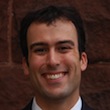Monday round-up

on Mar 15, 2010 at 10:41 am
Justice Clarence Thomas made the news twice this weekend. The Dallas Morning News reported on a package – containing two books and a personal note – that the Justice sent to a local high school student who had been honored as a “Good Kid†by the newspaper. The student had mentioned that Justice Thomas and Michelle Obama were the two people she would most like to meet. The Los Angeles Times also reported that Virginia Thomas, the Justice’s wife, has founded Liberty Central Inc., which it characterized as a “‘tea party’ group.â€Â In the New York Times, Adam Liptak discussed the ways in which the Tea Party movement has placed the Constitution at the center of political discourse.
This weekend also saw further discussion of the comments made by Chief Justice John Roberts at the University of Alabama. In a question-and-answer session, the Chief Justice said that although anyone is free to criticize the Court, the atmosphere at January’s State of the Union address (in which President Obama took issue with the Court’s ruling in Citizens United) was “very troubling.â€Â The speech was broadcast this Saturday on CSPAN. On the op-ed page of the New York Times, Jeff Shesol placed President Obama’s confrontation with the Court in the context of FDR’s experience in office.Â
On its editorial page, the New York Times voiced its support for the introduction of cameras into the Supreme Court. The editorial board suggested that if the Court continues to exclude cameras, “Congress should pass a law requiring that the court’s proceedings be televised.â€Â Think Progress reports that John Podesta, chief of staff to President Clinton and current president of the Center for American Progress, recently made a similar argument on Fox News.
Many newspapers carried editorials about Snyder v. Phelps, in which the Court will consider whether the First Amendment protects religious protests at military funerals. The Baltimore Sun argued that “if the right to free expression is to have real meaning, it cannot be circumscribed on the grounds that such speech is hurtful or offensive.â€Â In a similar vein, the Los Angeles Times opined that “it is often the most outrageous opinions that require the protection of the 1st Amendment.â€Â In the Philadelphia Inquirer, columnist Michael Smerconish encouraged the Court to rule against Phelps and his congregation, while The Columbia (Mo.) Daily Tribune urged caution. The York Daily Record brought local flavor to its reporting on the case: appellant Albert Snyder lives in nearby Spring Garden, PA.
Briefly:
- The Los Angeles Times and the Christian Science Monitor reported on Michael Newdow’s latest challenge to the constitutionality of the governmental endorsement of a Pledge of Allegiance “under God,†a question that the Supreme Court avoided in 2004. By a vote of two to one, the Ninth Circuit upheld the practice. Judge Stephen Reinhardt, who had written the majority opinion in the earlier case, dissented.
- Legal Newsline reported on the most recent developments in Caperton v. Massey Coal, in which the Supreme Court held that an elected justice of the West Virginia Supreme Court should have recused himself rather than cast the deciding vote on a matter involving his largest campaign contributor. By a vote of four to one, the West Virginia Supreme Court declined to reconsider its earlier ruling. The Wall Street Journal also covered this decision on its Law Blog.
- On PrawfsBlawg, Richard Esenberg described the difficulty of incorporating Twombly and Iqbal into a first-year civil procedure course.


